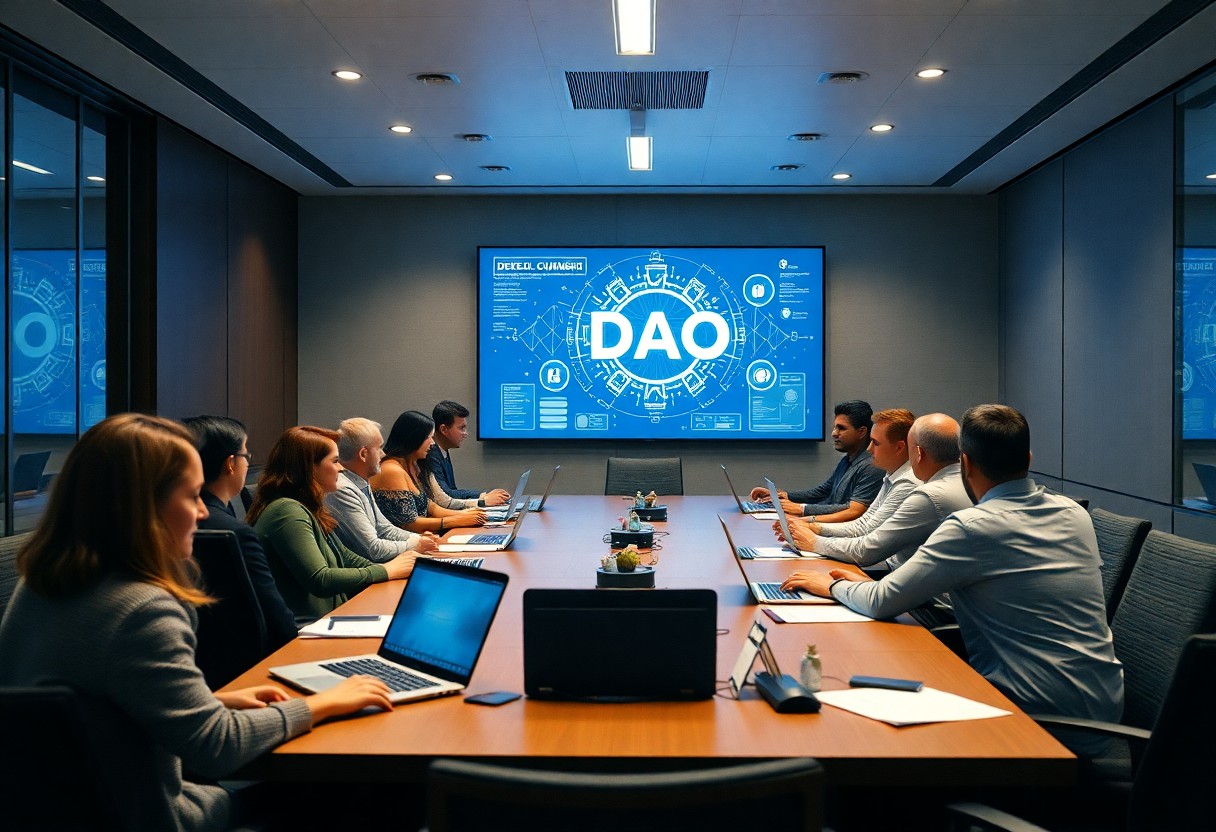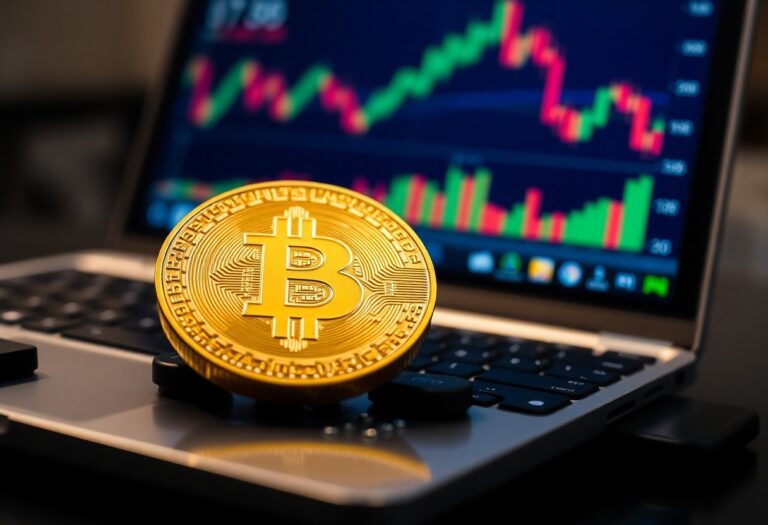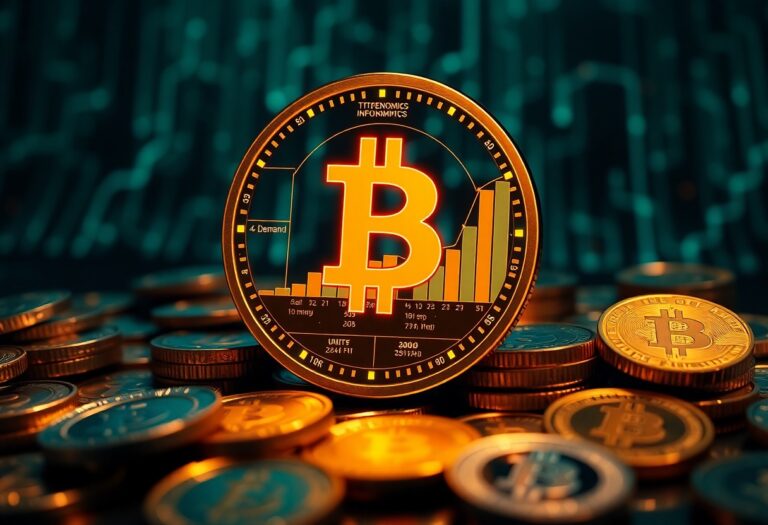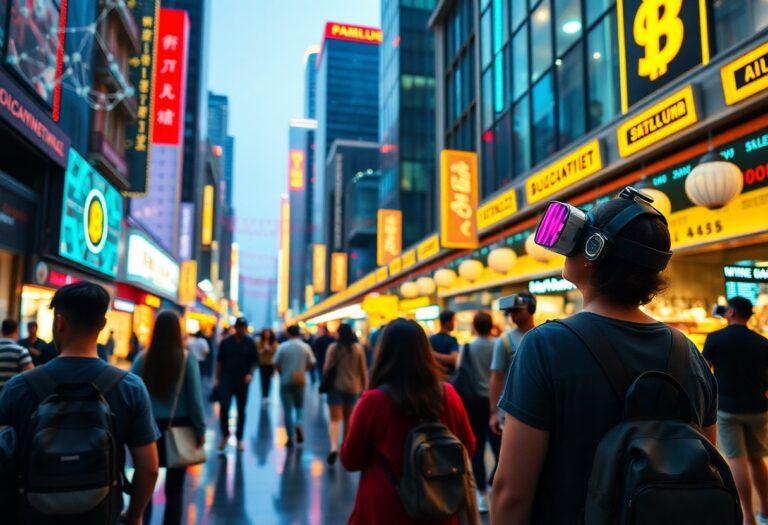What Is a DAO and How Does It Work?
There’s a transformative concept in the digital landscape known as a Decentralized Autonomous Organization (DAO), which empowers you to participate in collective decision-making without traditional hierarchies. DAOs operate on blockchain technology, enabling transparency and security in governance. You can engage in the decision-making process by holding tokens, giving you a voice in voting on proposals. While DAOs offer innovative opportunities for decentralization, risks such as lack of regulation and potential vulnerabilities in code remain. Understanding how DAOs function is imperative for anyone looking to navigate this evolving ecosystem.
What is a DAO?
For those exploring the world of decentralized organizations, a DAO, or Decentralized Autonomous Organization, represents a new paradigm in governance. It operates through smart contracts on a blockchain, allowing members to make decisions collectively without centralized control.
Definition of DAO
After extensive research, you’ll discover that a DAO is defined as an organization run by rules encoded as computer programs on a blockchain. This structure enables self-governance and automated operations, facilitating member-driven decision-making processes.
Key Characteristics
Any DAO is characterized by decentralization, transparency, and community-driven governance. These elements empower members to propose and vote on changes, ensuring that decisions reflect the collective will of the organization.
Understanding decentralization in a DAO means that no single entity holds control, creating a sense of democratized power. The transparency of smart contracts allows you to review decisions and transactions in real-time, fostering trust within the community. Moreover, with community-driven governance, your voice matters; you can influence the organization’s direction, thereby increasing engagement and commitment among members.
How DAOs Operate
Even though decentralized autonomous organizations (DAOs) function without a central authority, they operate through a blend of blockchain technology and community governance. Members use tokens to vote on proposals, thereby shaping the direction of the organization. This transparency and empowerment foster a collaborative ecosystem, allowing you to participate actively in decision-making processes.
Smart Contracts
One of the fundamental components of DAOs is smart contracts, which are self-executing agreements with the rules of the organization etched in code. These contracts ensure that decisions and financial transactions are carried out automatically when conditions are met, enabling you to trust the process without relying on intermediaries.
Governance Mechanisms
Before joining a DAO, it’s imperative to understand its governance mechanisms, which determine how decisions are made. Typically, members hold tokens that give them voting power, allowing you to influence proposals, initiatives, and even funding allocations.
Further, governance mechanisms can vary widely among different DAOs. Some may use a simple voting system based on token ownership, while others implement more complex structures that consider active participation or weighted voting. Your engagement and the distribution of voting power can have significant implications, as centralized control by a few can lead to vulnerabilities and potential abuse. Conversely, a well-distributed voting power promotes equitable decision-making and reduces the likelihood of any single party dominating the organization.
Benefits of DAOs
One of the significant benefits of Decentralized Autonomous Organizations (DAOs) is their ability to enhance collaboration and decision-making among members. By leveraging blockchain technology, DAOs empower participants to contribute to and shape the organization’s direction without traditional hierarchies. This leads to a more inclusive environment where your voice can significantly impact outcomes.
Transparency and Trust
Above all, DAOs foster transparency and build trust among their members. Every action and transaction is recorded on the blockchain, allowing you to verify processes and decisions. This open nature reduces the likelihood of fraud, ensuring that all participants feel secure and informed about the organization’s operations.
Decentralization
About decentralization, DAOs eliminate the need for a central authority. Instead, decision-making power is distributed among you and other participants, leading to a more democratic process. This structure can minimize bias and corruption, as no single entity can manipulate outcomes. Additionally, with funds managed collectively, your financial interests align with the organization’s, fostering a sense of ownership and responsibility.
A decentralized model means that your participation directly influences governance and resource allocation. This empowers you to have a say in the organization’s goals and direction while diminishing the risks associated with centralized control. As a result, DAOs can adapt more rapidly to changes in the ecosystem, enabling your organization to seize opportunities and respond to challenges effectively.
Challenges and Risks of DAOs
Your exploration of DAOs must include an understanding of the challenges and risks they present. While they offer innovative governance models and enhanced transparency, vulnerabilities such as security breaches, regulatory ambiguities, and the potential for misalignment among stakeholders can pose significant threats to their efficacy and longevity.
Security Concerns
DAOs face inherent security risks, including vulnerabilities in smart contracts and potential hacks. As your investment in these digital structures grows, it’s necessary to have robust security measures and regular audits to mitigate the risk of loss of funds and ensure operational integrity.
Regulatory Issues
The legal status of DAOs remains uncertain, raising regulatory challenges for participants. These uncertainties can affect your confidence and willingness to engage in DAO activities.
Plus, navigating the landscape of regulatory compliance can lead to complications for DAO participants. Jurisdictions vary in how they view DAOs, with some categorizing them as securities, while others do not. This inconsistency can expose you to potential liabilities and legal penalties. Additionally, the lack of established frameworks may hinder access to traditional financial systems, making it necessary for you to stay informed about evolving regulations and adapt your involvement in DAOs accordingly.
Use Cases of DAOs
Keep in mind that DAOs have diverse applications across various sectors, from investment to community building. They facilitate collaborative decision-making, enabling participants to govern projects, investments, or social initiatives effectively and transparently.
Investment DAOs
With investment DAOs, you can pool resources with like-minded individuals to invest in projects or assets together. These DAOs enable members to propose, discuss, and vote on potential investments, democratizing the investment process while providing a platform for shared financial growth.
Community DAOs
On the other hand, community DAOs allow you and others to build and manage communities around shared interests or goals. These organizations empower members to participate in decision-making, ensuring that every voice is heard and respected in community initiatives.
DAOs foster strong connections among members, enabling you to contribute your ideas and efforts towards a common purpose. They provide a space where participation is incentivized and voting reflects the consensus of the community, enhancing engagement. However, be mindful of the potential for mismanagement or vulnerabilities in governance, as these can lead to significant risks for participants. Your active involvement and vigilance are imperative for success.
Future of DAOs
Once again, the future of DAOs promises to revolutionize traditional governance and organizational structures. As blockchain technology advances, you can expect increased scalability, enhanced security, and wider adoption across various industries. The integration of artificial intelligence and machine learning could also streamline decision-making processes, making DAOs more efficient and responsive to member needs.
Potential Developments
With the rapid evolution of technology and regulatory frameworks, you will likely see new DAO models emerge, such as hybrid organizations that combine decentralized governance with centralized oversight. These developments can lead to innovative funding strategies and community-driven initiatives that better address social and economic challenges.
Implications for Business and Society
The rise of DAOs signifies a shift in how you engage with businesses and communities, creating opportunities for democratized decision-making.
But as DAOs grow, you should be aware of both the positive implications—such as increased transparency and inclusivity—and the dangers they pose, including potential for malicious actors to manipulate governance processes. Additionally, the shift towards decentralized models may disrupt traditional business practices, leading to both opportunities for innovation and challenges regarding regulation and accountability. Your participation in DAOs can empower you to shape future policies, but also requires vigilance to ensure ethical practices are upheld.
Summing up
Considering all points, a Decentralized Autonomous Organization (DAO) empowers you to participate in a governance model free from centralized control. By leveraging blockchain technology, you engage in decision-making processes with transparency and autonomy, making your voice count in shaping the direction of the organization. Understanding how DAOs work allows you to explore new avenues for collaboration and innovation within various communities and projects, ultimately enhancing your ability to influence outcomes in a digital landscape.






